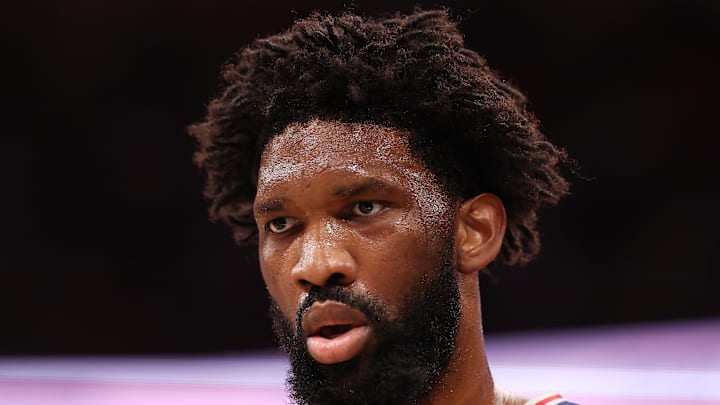Joel Embiid will never win another MVP. That's not breaking news, either — after so many grueling injuries over the years, it's a feat that Embiid is still playing basketball at a high level. But with the Sixers playing solid basketball without Embiid, and no clear sign how much he'll play the rest of the year, it's probably time to have a conversation about what Embiid's role will be when he is in the lineup.
For his health, and the sake of the Sixers, would it be more beneficial for Embiid to be a complementary option on offense rather than a focal point?
It sounds a little crazy just two years removed from an MVP campaign, but it might allow the Sixers to stay in rhythm in a year where Embiid will be in and out of the lineup.
How much should Joel Embiid play every night?
Here's the thing; a superstar coming in and out of the lineup every night causes some uncertainty. That's not anyone's fault, but if Embiid is expected to be the go-to guy each night, but we don't know which nights he'll actually play... That's not a great way to operate for a whole season. Continuity is vital in this league, and if a team never knows when its No. 1 option is going to play, that continuity is hard to find. So what if he isn't the No. 1 option? Or even No. 2?
What if Embiid is a 25-minute per night, offensive injection for the Sixers? It's not thrilling for Sixers fans, I know, but it might be the best way he can help the team in quick bursts, stay healthy for the playoffs, and be easily added (and subtracted) from the lineup on a nightly basis. What if he can be closer to Myles Turner instead of Nikola Jokic?
On occasion, if Embiid can turn back the clock and score 35 and grab 15 rebounds, that would surely be welcomed, of course. But expecting that from him every night might have an adverse effect on the Sixers' season. I know this isn't the most fun way to think about Embiid's return to the lineup, but it might be the best way forward for everyone involved.
